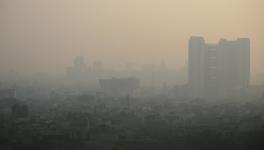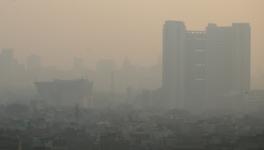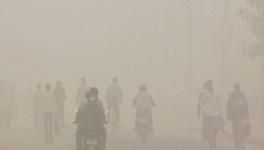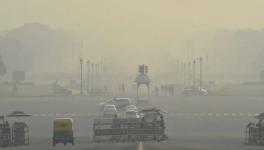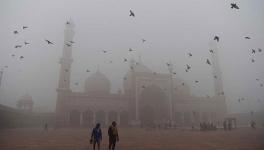Air Pollution May Account for 15% of COVID-19 Deaths Worldwide, Says New Study
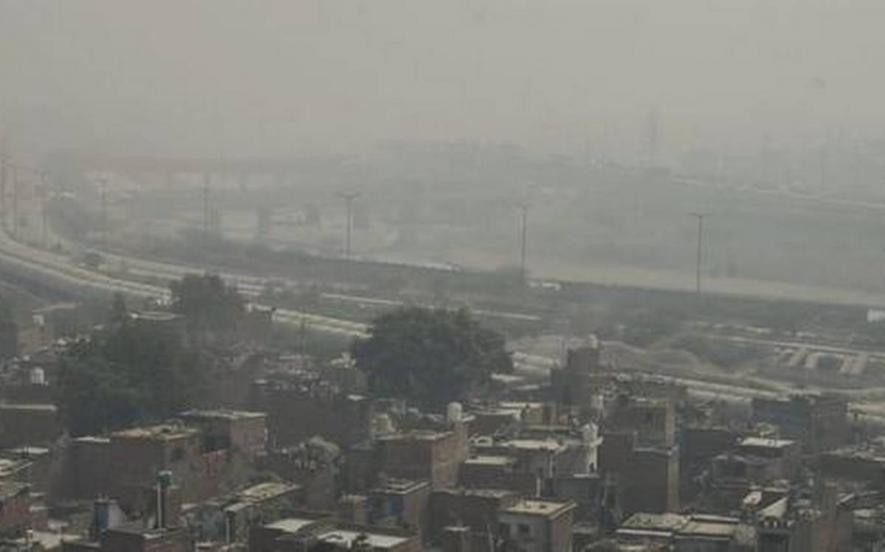
Image Courtesy: The Hindu
The poor quality of air has long been a major medical concern, with a wide range clinical manifestations starting from increased hospital admission to increased risk of premature deaths.
On October 27, a new research relating air pollution to pandemic was published in the Cardiovascular Research (CVR) journal. COVID-19, primarily a respiratory disease at its severe form, has been speculated to worsen with poor air quality. The CVR study says that air pollution could have accounted for about 15% COVID-19 deaths worldwide.
The research brings bad news for people living in cities like Delhi amid the pandemic, who have been witnessing extremely poor air quality for many years now. This year too, Delhi’s air quality has been poor since the onset of autumn. The forecast says that the air will remain poor in quality till October 31.
The study also deciphered the regional variation of COVID-19 deaths due to long term exposure to air pollution. It says in Europe, the proportion of death is about 19%, while in North America it is 17% and in East Asia it is about 27%.
According to the research paper, these proportions of deaths are an estimate of “the fraction of COVID-19 deaths that could be avoided if the population were exposed to lower counterfactual air pollution levels without fossil fuel-related and other anthropogenic [human induced] emissions.”
However, the estimation does not reflect a direct cause-effect relationship between air pollution and COVID-19 deaths. Rather, it indicates the fact that in the absence of pollution, people with co-morbidities could have avoided the severity caused by the viral infection.
For their estimation, the researchers used epidemiological data available from previous studies on US and China and the SARS outbreak of 2003. They also included additional data from Italy. With this data set, the researchers compared another data set that comprises global exposure to air pollution caused by particulate matter 2.5 (particles having diameter of 2.5 microns). The PM 2.5 air pollution dataset was from the satellite data of global exposure to PM 2.5, information of ground based networks for monitoring pollution. They then developed a model to estimate the fraction of COVID-19 deaths that could be attributed to long term exposure to PM2.5. The epidemiological data was collected till June.
Also read: Global Air Pollution Report Says PM 2.5 and Ozone Concentration Continue to Rise in India
Prof Jos Lelieveld of Max Planck Institute of Chemistry, Mainz, Germany, and a corresponding author of the study said—“Since the numbers of deaths from COVID-19 are increasing all the time, it’s not possible to give exact or final numbers of COVID-19 deaths per country that can be attributed to air pollution. However, as an example, in the UK there have been over 44,000 coronavirus deaths and we estimate that the fraction attributable to air pollution is 14%, meaning that more than 6,100 deaths could be attributed to air pollution. In the USA, more than 220,000 COVID deaths with a fraction of 18% yields about 40,000 deaths attributable to air pollution.”
On the mechanism of how PM 2.5 can aggravate the respiratory disease, Prof. Thomas Munzel of Gutenberg University, Germany, said—“When people inhale polluted air, the very small polluting particles, the PM2.5, migrate from the lungs to the blood and blood vessels, causing inflammation and severe oxidative stress, which is an imbalance between free radicals and oxidants in the body that normally repair damage to cells. This causes damage to the inner lining of arteries, the endothelium, and leads to the narrowing and stiffening of the arteries. The COVID-19 virus also enters the body via the lungs, causing similar damage to blood vessels, and it is now considered to be an endothelial disease.”
“If both long-term exposure to air pollution and infection with the COVID-19 virus come together then we have an additive adverse effect on health, particularly with respect to the heart and blood vessels, which leads to greater vulnerability and less resilience to COVID-19. If you already have heart disease, then air pollution and coronavirus infection will cause trouble that can lead to heart attacks, heart failure and stroke,” he further added.
The study also shows a country wide estimation of COVID-19 deaths attributable to long term air pollution exposure. According to it, Czech Republic has a share of 29%, China 26%, Germany 22%, Italy 15% and so on. New Zealand has a very low share of 1%.
Get the latest reports & analysis with people's perspective on Protests, movements & deep analytical videos, discussions of the current affairs in your Telegram app. Subscribe to NewsClick's Telegram channel & get Real-Time updates on stories, as they get published on our website.









